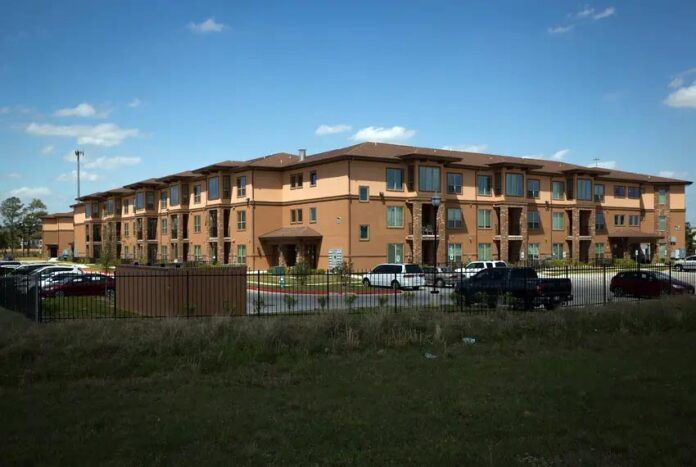The Texas Supreme Court ended its temporary moratorium on evictions on May 18. Locally, that meant property owners who don’t have a federally-backed mortgage were able to begin the eviction process again this month.
Texas RioGrande Legal Aid’s team of housing attorneys received more than triple the requests for landlord/tenant-related assistance this May compared to that of 2019, according to Equal Justice Works fellow Eva Sikes.
“In June, we’re already at 75 percent of the requests we got for the whole month of June 2019 — and we’re not through the month yet,” she said.
The increases weren’t necessarily filings of evictions and also included tenants requesting legal assistance related to their tenancy. Those requests include tenants dealing with informal evictions — where landlords perform lockouts or fail to issue a notice to vacate according to procedure.
For properties with federally-backed mortgages, protections implemented for renters under the CARES Act lift on July 25. Rental housing experts have been petitioning Congress and Texas representatives to pursue aid for building owners as well in an effort to prevent a surge of evictions come July.
The bill mandated that landlords with Freddie Mac or Fannie May-sourced loans and mortgages could not perform any evictions for nonpayment of rent, could not increase rent, and could not charge late fees. That’s on top of what some owners have already been doing to assist, said Crystal Moya, a member of the Texas Apartment Association’s executive board.
Renters unable to pay due to layoffs, health concerns, or other issues caused by the pandemic may have access to rental assistance through individual cities, nonprofits, and organizations like the Red Cross and Catholic Charities, though the Texas Apartment Association is still encouraging landlords to communicate openly with residents, to reach out to see if they need assistance, and to play an active role in keeping tenants in their homes.
According Moya, many eviction courts in Texas are still closed or just opened recently, meaning eviction filings are just getting started. This might mean eviction courts will see a surge prior to the federal moratorium lifting at the end of next month.
“It’s going to take time; there’s going to be some backlog on evictions,” she said. Fifty-percent of all properties in Texas have some sort of federally-backed loan or are federally-subsidized housing, she added.
TAA is already encouraging property owners to work with tenants to find rental assistance in the hopes that doing so will keep the market steady for everyone. “We’re highly encouraging our owner members to offer residents payment plans or discounts wherever possible, as well as waiving late fees. The CARES Act has offered a plethora of benefits for residents,” said Moya.
“On my part for example, we have 20 communities in Texas, 10 of which are in the Rio Grande Valley. They are all affordable, they all have some form of federally-backed loan. We went above and beyond the CARES Act and have a 10 percent discount across the board to all our residents.”
Moya’s management contacted every single resident indicating there were resources available if tenants fell on hard times financially. She argued that doing so is the responsibility of landlords and housing authorities across the state. “We want to make sure we keep everybody housed — safe and sanitary housing, and to be part of the solution,” Moya said.
“We ask our managers and owners to work closely with residents as liaisons and to be the point of contact for tenants, because some of them don’t have the resources. Maybe they don’t have internet, maybe they don’t have a computer — utilizing the front office to help them is a great first step.”
TRLA keeps a map of federally-backed properties across the state of Texas. The interactive tool is available at www.trla.org/covid19-renter-protections-under-the-cares-act.





